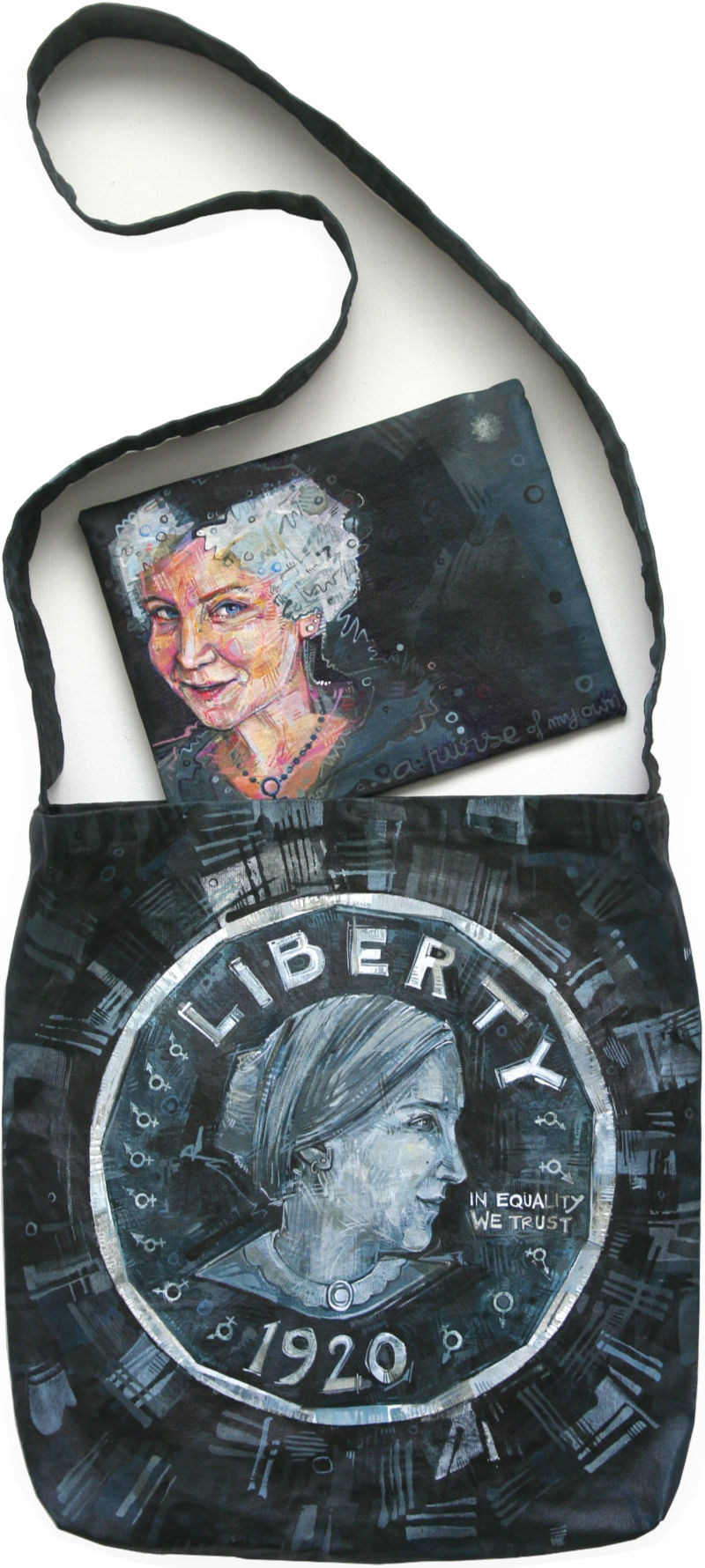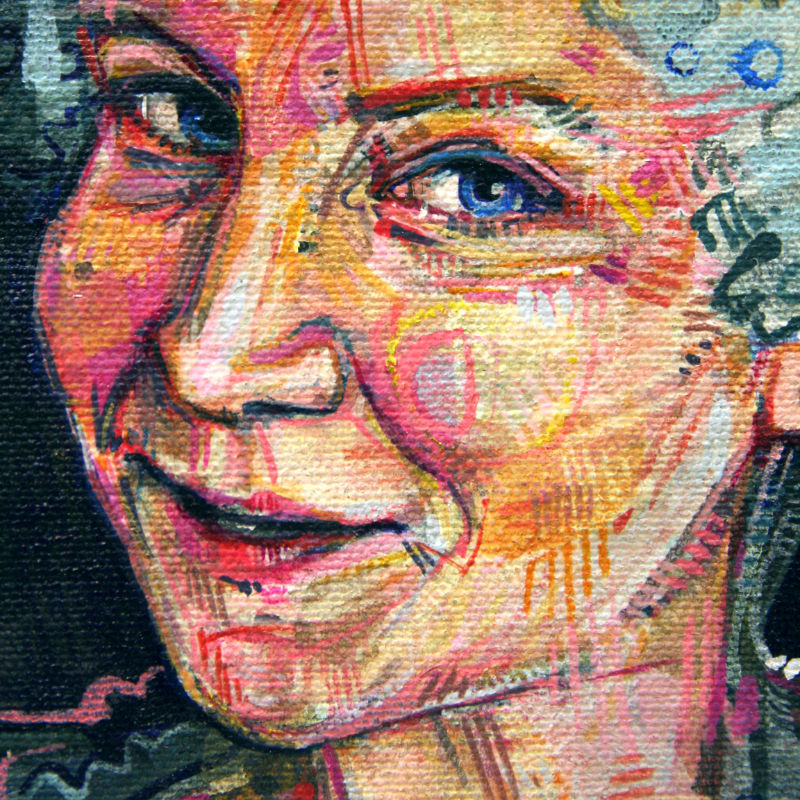Artwork / Archives / Apple Pie / The Declarer and the Susan B (Anglo-American, Alexandra)

The Declarer and the Susan B (Anglo-American, Alexandra)
2008
acrylic on canvas bags
37 x 15 x 2 inches
I met the subject of these portraits in college, and I’ve painted a lot of people from that time in my life over the years. I painted them while I was still in school and directly after, but also as I evolved as an artist. This piece from 2005 and this one from 2009 reveal some of that change in my style.
Below is the subject’s answer to this question: what does it mean to be an American?
Most Americans wear their citizenship proudly on their sleeve (or lapel, or T-Shirt, or bumper sticker), boasting to anyone that will listen that everything they say, do, or believe is automatically better, simply because of their nationality. They did not have my grandmother. Haughty, proper, and unwaveringly British, she placed my sister and I under a microscope simply because her daughter had had the audacity to have children in America. Our accents, hobbies, and of course, table manners were all weaknesses and opportunities for improvement. Everything we said, did, or believed was automatically flawed, simply because of our nationality.
This is, of course, an extreme example of British pride, but it was part of my upbringing. My parents weren’t nearly so staid, they were willing immigrants who embraced much of what America and in particular, California, had to offer. Even so, when you put a normal American childhood through a British lens, you learn to question everything our culture agrees is “normal.” Halloween, sleep-away camp, football games, drive-thru’s, the prom—it all led to long dinner conversations and bargaining. “But Mom, the boy pays for the tickets and the girl pays for pictures!” Just as often it was really cool to have parents from another culture—even more holidays and traditions to practice. Pancake parties, Christmas crackers, alcohol when you are 15—that part rocked.
Through the ups and downs, being raised as a first-generation American taught me not to take our customs for granted, but to question everything. A school fundraiser could be the catalyst for a family discussion of educational policy in the US and Europe and the strengths and weaknesses of each. It taught me that participating in citizenship by voting or performing a jury duty is a privilege, not a burden, as my dad only had a green card for much of my life. (I also spent much of my childhood thinking that women were the voters in society and men just watched election coverage for fun.) Most of all, it taught me that we are not the “greatest nation.” Every nation and culture on Earth has something to be proud of, and we can learn from them if only we put our national pride aside. Immigration has the potential to expand America’s culture and consciousness with a wide variety of perspectives, and I am proud to be a part of that promise.
